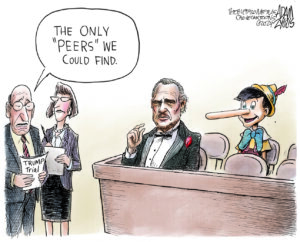The Trouble With Online Education
Internet teaching deprives educators of the vital opportunity to learn who their students are, where they are intellectually and how best to help them grow, University of Virginia English professor Mark Edmundson argues in the Op-Ed pages of The New York Times.
Internet teaching deprives educators of the vital opportunity to learn who their students are, where they are intellectually and how best to help them grow, University of Virginia English professor Mark Edmundson argues in the Op-Ed pages of The New York Times.
Real teaching is a “matter of dialogue,” he continues, not simply lecturing with the expectation that students absorb and master the lessons. Online education neuters the relationships between everyone involved, reducing exchanges in the “classroom” to links on an email chain and making the experience of learning lonelier than it necessarily already is.
— Posted by Alexander Reed Kelly.
Your support matters…Mark Edmundson in The New York Times:
Online education is a one-size-fits-all endeavor. It tends to be a monologue and not a real dialogue. The Internet teacher, even one who responds to students via e-mail, can never have the immediacy of contact that the teacher on the scene can, with his sensitivity to unspoken moods and enthusiasms. This is particularly true of online courses for which the lectures are already filmed and in the can. It doesn’t matter who is sitting out there on the Internet watching; the course is what it is.
… A truly memorable college class, even a large one, is a collaboration between teacher and students. It’s a one-time-only event. Learning at its best is a collective enterprise, something we’ve known since Socrates. You can get knowledge from an Internet course if you’re highly motivated to learn. But in real courses the students and teachers come together and create an immediate and vital community of learning. A real course creates intellectual joy, at least in some. I don’t think an Internet course ever will. Internet learning promises to make intellectual life more sterile and abstract than it already is — and also, for teachers and for students alike, far more lonely.
Independent journalism is under threat and overshadowed by heavily funded mainstream media.
You can help level the playing field. Become a member.
Your tax-deductible contribution keeps us digging beneath the headlines to give you thought-provoking, investigative reporting and analysis that unearths what's really happening- without compromise.
Give today to support our courageous, independent journalists.






You need to be a supporter to comment.
There are currently no responses to this article.
Be the first to respond.